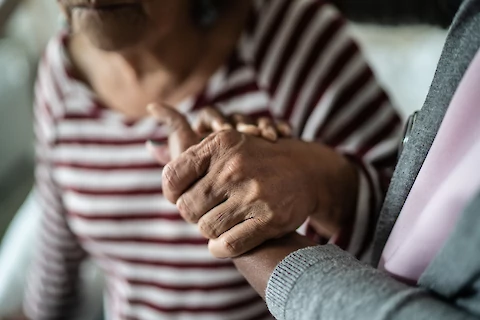
The diagnosis of Parkinson's Disease is a life-altering experience, one that requires major lifestyle changes and accommodations. But understanding the condition and its associated challenges can help improve the quality of life for seniors affected by it.
In this post, we will discuss the daily hardships posed by advancing Parkinson's Disease (PD), as well as some solutions to navigate this journey.
What is Parkinson's Disease and What Causes it?
Parkinson's Disease (PD) is a neurodegenerative disorder that begins when certain nerve cells within the brain die or become severely damaged. This affects a senior's ability to control their movements, leaving them with tremors and stiffness as well as impaired balance and coordination. It can be a very debilitating condition without proper treatment and care.
The cause of PD is still mostly unknown; however, scientists believe that a combination of genetic and environmental factors can cause it. Specifically, certain genes can make individuals more susceptible to developing Parkinson's, and exposure to environmental toxins such as pesticides or industrial chemicals may increase their risk even further.
Symptoms of Parkinson's Disease
The most common symptom of PD is a tremor. Shaking can affect the whole body but is especially prominent at rest. Other symptoms include slowed movement, rigidity (or stiffness), difficulty with balance and coordination, impaired speech and writing skills, depression, anxiety, and cognitive changes (such as trouble with problem-solving or memory).
Daily Challenges of Advancing Parkinson's Disease
As PD progresses, additional physical and cognitive challenges arise. Physical manifestations of the disease can include:
- A decreased ability to move freely
- Tremors
- Stiff muscles
- Sudden drops in blood pressure
- Dizziness when standing for extended periods
- Diminished mobility
There may also be cognitive changes associated with it as well:
- Difficulty paying attention or carrying out complex commands
- Trouble with motor skills
- Poor communication abilities
- Slowed speech patterns
- Withdrawn behavior
How to Help With the Condition
Living with PD can require significant lifestyle modifications. Regular physical activity is one of the most important tools for managing symptoms and improving the overall quality of life. Light exercises, such as walking and other low-impact activities can help strengthen muscles while increasing mobility and balance. Additionally, following a healthy diet packed with vitamins and minerals can provide improved neurological functioning necessary for daily tasks.
Medication may be prescribed to treat the symptoms of PD; however, seniors must follow their doctor's instructions carefully in order to avoid potential side effects or reactions. Finally, support groups are an invaluable asset when it comes to dealing with Parkinson's Disease – they offer an understanding community that can offer advice on how best to manage difficult situations while providing social outlets that become increasingly vital over time.
Let Senior Helpers Summerville Help
At Senior Helpers Summerville, we understand the daily challenges that come with advancing Parkinson's Disease. Our caregivers are trained to handle this disorder and provide a warm and comforting environment for seniors living with PD. From providing physical help around the house, planning nutritious meals, to offering necessary medical care – our experienced aides can assist in every aspect of your loved one's care.
If you or someone you know is facing Parkinson's Disease in Summerville, Orangeburg, Santee, Summerton, Ridgeville, or St. Matthews – don't hesitate to reach out to Senior Helpers today. With our skilled staff ready to lend their helping hands and understanding hearts, we can make sure your elderly family member gets all the support they need during this challenging time.